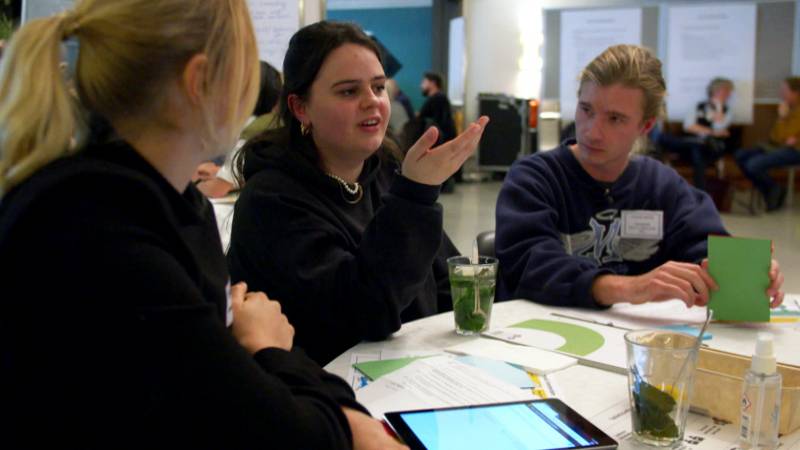A political experiment in Amsterdam: the capital wants to emit less than half of its carbon dioxide in ten years than it did in 1990, but that will not be possible with current measures. This is why the municipality has asked 100 squatters to submit concrete proposals at a so-called citizens’ meeting to reduce carbon dioxide emissions fast enough.
This tool has already been used in other countries, such as France and Ireland, to get citizens more involved in politics. But do the plans really take off?
Industry’s biggest emitter
In the capital, electricity consumption in the business market in particular, such as the hotel sector and port industry, continues to cause significant greenhouse gas emissions. According to calculations, the capital will achieve a CO2 reduction of 37 percent by 2030 instead of the desired 55 percent.
Hoping to continue meeting the climate goals, the city council asked two thousand random Amsterdam residents if they wanted to consider additional measures. The municipality selected 100 people who gathered for several days and evenings. They received information from experts, such as the director of KNMI.
Amsterdam’s miniature citizens’ council is also an experiment to see if it works and is a good way to get it published more often – perhaps also nationally. But at the beginning of the mini-council of citizens, criticism was expressed about the shortness of its term. Many participants felt that you cannot deal with a complex topic such as reducing carbon dioxide in a few days.
Take a look behind the scenes in the video below:
Politicians think short term. Citizens are better able to do tangible things’
Despite the criticism, the people of Amsterdam got to work. They eventually came up with 26 plans. For example, they suggested that from 2025 cruise ships using only green electricity should dock in Amsterdam.
Other ideas include a fund to encourage more sustainable homes and an increase in parking permit prices, especially for a second car. The municipality can also grant subsidies to people who continue to work from home, so that passenger traffic in Amsterdam is reduced.
The council presented the plans to alderman Marieke van Dornenck (Sustainability) on Monday evening. She says the city council intends to adopt the proposals. “Because of course you can’t ask people to get together some evening, make good plans and then do nothing with them.”
“
The government often surprises the citizens with the measures. Now it is the other way around.
Former Ombudsman Alex Brennenkammer is the President of the Amsterdam Citizens Council. Earlier this year, the government commissioned him to conduct research on citizen participation in climate policy.
“The government often surprises citizens with measures,” Brinenkmeier says. “Now the opposite is true: the government first talks to the citizens and then comes up with measures. Then you can expect that with these measures a lot of thought has been given: What does that mean for the citizens?”
Brinenkmeier believes that governments should use this “direct form of democracy” more often. “The EU now has a similar process going on about the future of the EU. But it is essential that this happens more often, that it is recognized and that people trust that this is a good tool and that they take it seriously… to take it.”
“The municipality ignores the criticism”
By the way, not everyone is pleased with the mini-citizen consultations. Harmen Bos of Burgerplatform Nederland, for example, argues that important residents, who have been involved in climate policy for years, are not heard in this way.
“Citizens’ deliberations may seem sympathetic from the outside, and they are in part, but the climatic measures the municipality has already introduced deserve more attention. You also have to listen to the residents who are already aware of this. If you ignore their criticism, you are just not taking some of your residents seriously.”
Ultimately, the city council decides whether Amsterdam actually implements the plans. The council will discuss the measures in February.

“Lifelong zombie fanatic. Hardcore web practitioner. Thinker. Music expert. Unapologetic pop culture scholar.”








